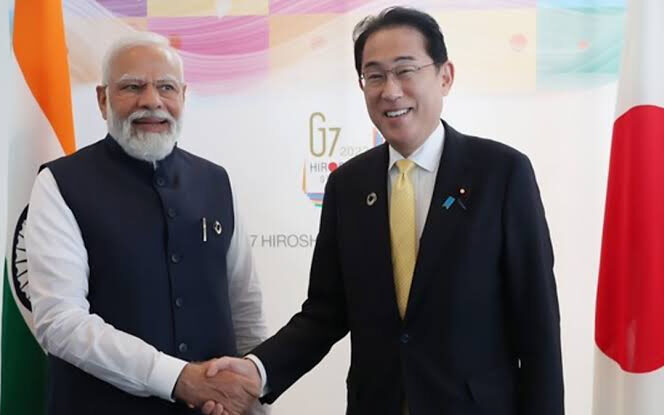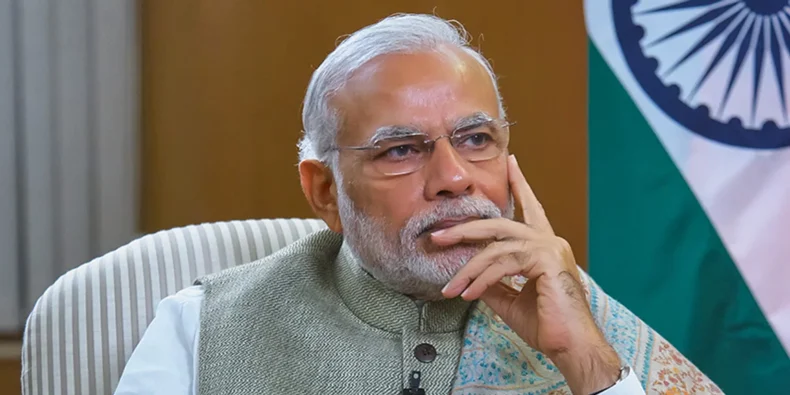Prime Minister Narendra Modi’s 10-point action plan to address issues with food, fertilizers, and healthcare.
Credits Economic times
Mumbai: Prime Minister Modi on Saturday called for creating an inclusive food system to help the world’s most vulnerable people. Modi spoke about limiting the “expansionist mentality” consuming fertilizer resources in a speech at a G7 summit session in Hiroshima, and he fervently supported the democratization of technology
In his 10-point action plan, the prime minister outlined 10 goals, including reducing food waste, depoliticizing the supply chains for fertilizer around the world, boosting millets, fostering holistic healthcare, bolstering digital healthcare, and creating development models that are motivated by the need of developing nations.
According to Modi, organic food should not be associated with “fashion statement and commerce,” but rather with good nutrition and well-being. Our top objective should be to create inclusive food systems that prioritize the most marginalized farmers and other disadvantaged populations, Modi stated in Hindi.
Supply channels for fertilizers must be enhanced on a global scale. There must be a removal of political barriers in these. Additionally, the expansionist mindset that is using up fertilizer resources needs to be stopped. This ought to be the goal of our collaboration, he remarked.
Additionally, Modi discussed the significance of organic farming. As an alternative to fertilizers, we can develop a new natural agricultural approach. I think we should make digital technology available to all farmers worldwide. According to Modi, organic food should not be associated with “fashion statement and commerce” but rather with good nutrition and well-being.
To ensure long-term global food security, he continued, we all need to go share responsibility for preventing food waste. According to him, India would achieve net zero by 2070 and its extensive railway system will let it do so by 2030. Currently, India has an installed renewable energy capacity of roughly 175 GW. According to him, it will reach 500 GW by 2030.
Environmental obligations, he continued, are a catalyst for India’s progress rather than a barrier.
During a second outreach session centered on clean energy and environmental conservation, Modi emphasized that one obstacle hindering the resolution of issues like climate change and environmental and energy security is our narrow perspective of viewing climate change solely through an energy lens.

Credit ANI
Clean energy and environmental conservation are of utmost importance today due to various reasons. Firstly, transitioning to clean energy sources like solar, wind, hydro, and geothermal power helps mitigate climate change by reducing greenhouse gas emissions. Secondly, clean energy technologies improve air quality by eliminating pollutants emitted by traditional energy sources. Additionally, clean energy relies on renewable resources, ensuring sustainability and avoiding resource depletion.
It also promotes energy security and independence by reducing dependence on fossil fuels, which are subject to price fluctuations and geopolitical tensions. Overall, embracing clean energy and environmental conservation addresses climate change, enhances air quality, ensures energy security, fosters economic growth, preserves ecosystems and biodiversity, promotes public health, and drives technological progress. Therefore, it is crucial to prioritize sustainable practices and clean energy sources in today’s time.
Modi claimed that one of the reasons it is difficult to address issues like climate change and environmental and energy security is that “we view climate change only from an energy perspective” while taking part in a second outreach session on renewable energy and
Regarding health security, Modi remarked that COVID-19 had questioned the notion of cooperation and assistance, claiming that the availability of vaccines and medications was based on political considerations rather than considerations for the welfare of the people.












